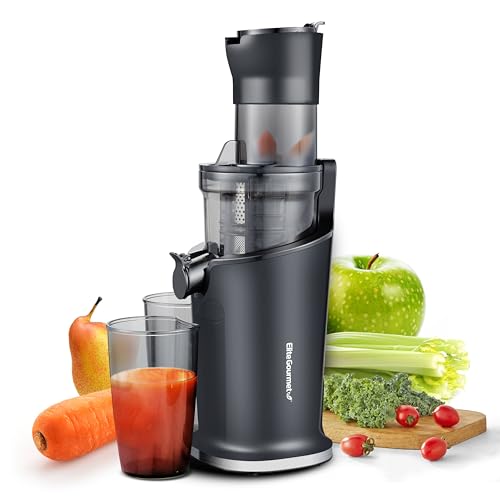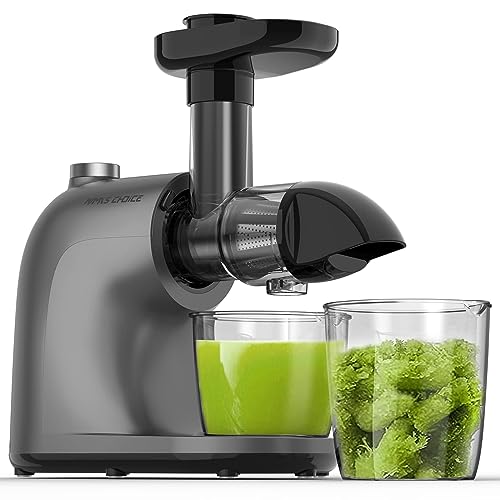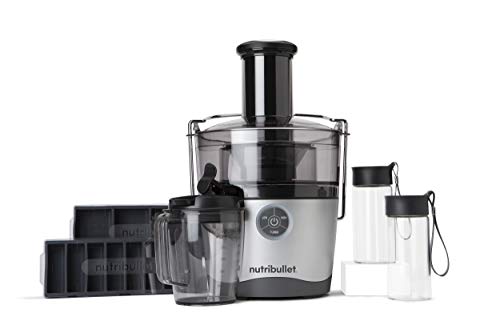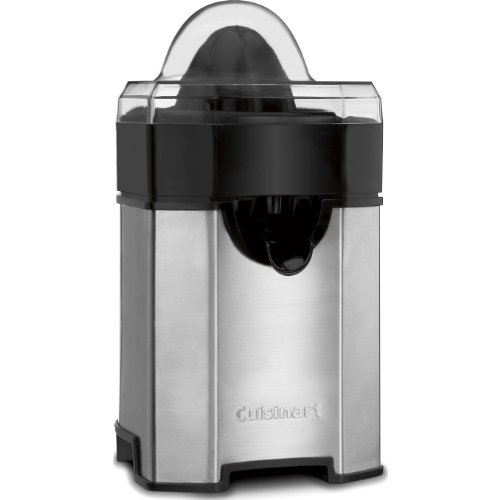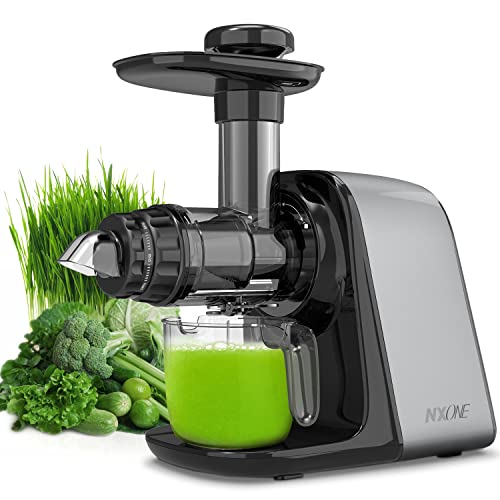- Does Beer Expire?
- Does Beer Go Bad?
- How Does The Packaging Of Beer Affect Its Quality?
- What Is The Best Way To Store Beer?
- How To Read Beer Expiration Dates?
- Intentionally Aging Beer
- How To Properly Dispose Of Expired Beer?
- FAQs
- Is It Safe To Drink Expired Beer?
- How fast do I need to drink IPA?
- Can you drink beers that have expired for more than 2 years?
- Is it better to store Beer in a fridge or cellar?
- How long does unopened Beer last?
- How long does opened Beer last?
- Is it safe to drink Beer that has been stored in a hot car?
- Conclusion
Does Beer Expire? Things To Know About Beer
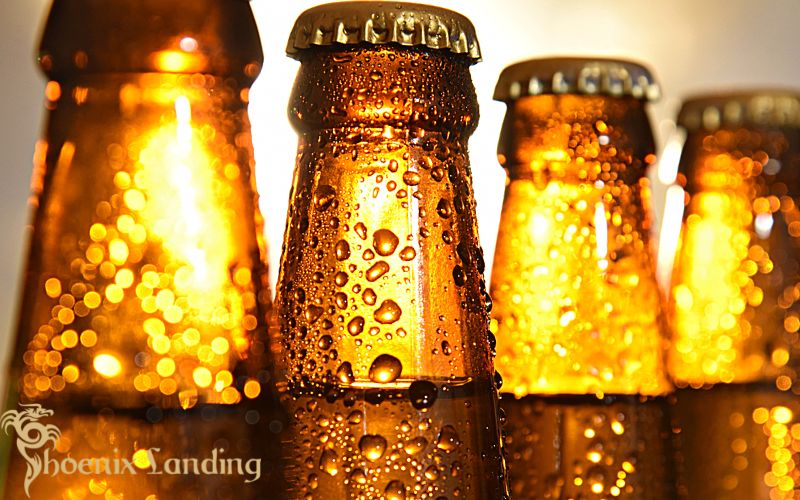
When it comes to Beer, there is a lot of debate over whether or not it expires. Many people believe that Beer has an indefinite shelf life, while others think that it eventually goes bad. So, Does Beer Expire? The answer is yes, Beer can expire. However, unlike milk, the expiration date of Beer here isn’t actually completely unsafe to drink, it’s that its taste has faded or is flatulent. Contrary to what many people believe, Beer does expire, and it’s important to understand the shelf life of this beverage so that you can enjoy it at its best. In this blog post, we will explore the expiration dates of Beer and what happens when it is past its prime. We will also provide tips on how to store your Beer so that it lasts as long as possible. So, whether you are a die-hard beer lover or just curious about the topic, read on for more information!
Does Beer Expire?
There are quite a few people asking this question. The answer is yes, Beer can expire. However, unlike milk, Beer, after its expiration date (not long enough), is still drinkable rather than unsafe to drink expired Beer. Over time, the taste and aroma of expired Beer gradually change or becomes bloated; the smell is quite unpleasant. If you take a sip of expired Beer, you won’t get sick, but its taste is quite unpleasant. Beer, if stored properly, can prolong the enjoyment of delicious Beer by several weeks, and the effect of expired Beer is the same as that of old Beer, thanks to its fermentation and pasteurization mechanism.
Mechanism of pasteurization in the brewing process:
Pasteurization is a process in which Beer is heated to a certain temperature and then cooled quickly. This process kills any harmful bacteria present in the Beer, making it safe to drink. Pasteurization also extends the shelf life of Beer by preventing new bacteria from growing. In addition, pasteurization helps to preserve the flavor and aroma of Beer.
Pasteurized Beer can last up to six months if stored properly. However, after six months, the quality of the Beer will start to decline. The flavor and aroma of the Beer will become dull and flat, and the color may start to fade. If you want to enjoy your Beer at its best, it is best to drink it within six months of its expiration date.
When Does Beer Expire?
Typically at room temperature, Beer will last 5 to 9 months after the expiration date stated on the label. If stored in the refrigerator at the right temperature, Beer can last from 2 to 3 years, depending on the type of Beer. This applies to bottled beers, cans, and kegs. Condition all unopened and pasteurized during brewing. You will not need to worry too much when the beer inventory is too much.
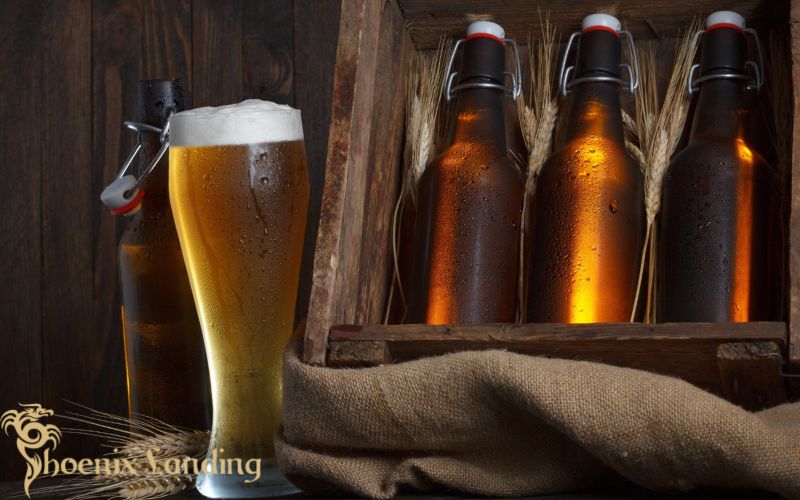
For opened Beer, you should use it within the day because oxygen in the air will gradually come in by opening the cap. At this time, the Beer will oxidize and go stale faster.
Most beers on the market have the date and expiry date printed on their labels.
Besides, you can use the “Born on Date” to find out when your Beer was brewed and how long it will be at its best. You can find this information on the bottom of beer cans or on the neck of beer bottles.
Does Beer Have An Expiration Date?
The answer is yes, most companies print production and expiry dates on packages and labels on bottles, cans, and kegs. The thinner the bottle, can, or keg of Beer, the shorter the expiration date. The more transparent the beer bottle is, the more it is stored in the wrong place where the light shines, increasing the oxidation rate of Beer, and reducing taste and flavor much faster. Plus, unlike bottle shock, which is irreversible, Beer will lose its original flavor even if you move to a better storage location.
How Long Does It Take For Beer To Expire?
It takes about 9-10 months for bottled Beer to expire and 3-4 months for canned Beer. However, this is only an estimate because it depends on the type of Beer, how it is stored, and the manufacturing process. For example, some beers are designed to be consumed within a few weeks of their production date while others can last
What Happens If You Drink Expired Beer?
Drinking expired Beer is not harmful, but it may not taste great. The flavor and aroma of the Beer will be dull and flat, and the color may start to fade. Once your Beer is past its expiry date, the Beer will no longer have foam and the dominant taste is sour, losing its inherent aroma. For some people with a weak stomach, drinking expired Beer will cause stomach pain for them. If you want to enjoy your Beer at its best, it is best to drink it within six months of its date of manufacture.
Does Beer Go Bad?
What Makes A Beer Go Bad?
Light
UV rays are capable of doing more than just fading colors; they can also ruin your Beer. When light penetrates the bottle, it causes hop compounds in the liquid to break down and combine with a sulfur-based odor that produces an unpleasant scent similar to what you would smell from walking past skunks on purpose or by accident! This is why dark brown or green bottles are ideal for storing Beer, as they do a great job of shielding the liquid from harmful sunlight.
Of course, not all beers are brewed with the same hop quantities. The more hops in a recipe have been shown to increase the chances for skunking when compared to those who use less or none at all! For example, American Lagers low in hops are less likely than IPAs, which contain more of those bittering agents.
Oxygen
While most people know that oxygen is essential for yeast to properly ferment during the brewing process, few are aware that it can also cause your Beer to go bad after it has already been bottled. Once Beer is exposed to oxygen, it will start to stale; you’ll notice a change in flavor, aroma and overall quality. This is why it’s important to keep your Beer stored in an airtight container, such as a keg or can.
Temperature
Too hot or too cold, and your Beer will be ruined. When stored at high temperatures, Beer will actually start to cook, which will cause it to take on a cooked vegetable-like flavor. If stored in the freezer, Beer can become oversaturated with carbon dioxide, which will cause it to taste flat. The ideal storage temperature for Beer is between 12-15°C.
Enzymes
While enzymes are a necessary component of the brewing process, they can also cause Beer to go bad if they are not properly removed during filtration. If enzymes are present in finished Beer, they will continue to break down carbohydrates and proteins, which will cause the Beer to become cloudy and taste stale. In addition, enzymes can cause Beer to become over-carbonated, resulting in a foamy, unpalatable product.
Bacteria
Bacteria is another common culprit of beer spoilage. While most bacteria are removed during the brewing and bottling process, some can still remain in the finished product. If left unchecked, these bacteria will multiply, causing the Beer to become sour and unpalatable. In some cases, bacteria can also cause the formation of harmful toxins that can make people sick.
While most bacteria are harmless, there are some strains that can cause serious illness, such as Listeria and E. coli. These pathogens can enter the Beer during the brewing process, so it is important to practice proper sanitation and hygiene when handling Beer.
Fungi
Fungi, such as mold, can also cause Beer to spoil. Mold can enter the Beer during the brewing process, or it can grow on the surface of the Beer if it is not properly sealed. Mold will cause the Beer to take on a musty or earthy flavor, and it can also cause the Beer to become cloudy. In some cases, mold can also produce toxins that make people sick.
While most fungi are harmless, some strains can cause serious illnesses, such as histoplasmosis and cryptococcosis. These diseases are caused by exposure to airborne spores from certain types of fungi. If you suspect that your Beer has been contaminated with mold, it is important to discard it immediately.
Acid
Acids are another common culprit of spoiled Beer. Acetic acid, in particular, is produced by bacteria that can cause Beer to taste sour and vinegary. Besides, acetic acid can also cause the formation of harmful toxins that can make people sick.
While most acids are harmless, there are some that can cause serious illness, such as sulfuric acid and hydrochloric acid. These chemicals can enter the Beer during the brewing process, or they can be added deliberately to give the Beer a sour flavor. If you suspect that your Beer has been contaminated with acid, it is important to discard it immediately.
Now, you’re reading “Does Beer Expire?” of Phoenix Landing Bar. Keep reading!
How Can You Tell If Beer Is Bad?
If you’re unsure whether or not your Beer has gone bad, there are a few telltale signs to look for:
- Check the appearance of the Beer. If it is cloudy or has sediment floating in it, this is a sign that it has gone bad.
- Smell the Beer. If it has a sour or vinegary aroma, this is another sign that it has gone bad.
- Taste the Beer.
If it tastes sour, bitter, or otherwise unpleasant, this is a sure sign that it has gone bad.
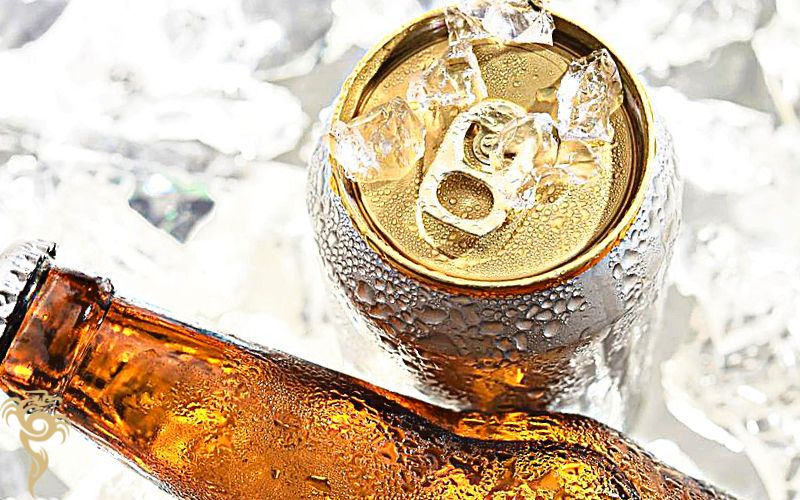
If you suspect that your Beer has gone bad, it is important to discard it immediately. Drinking spoiled Beer can cause nausea and vomiting, and in some cases, it can also lead to serious illness.
Does Beer Go Bad In The Heat?
Yes, heat causes Beer to go bad more quickly than if it’s refrigerated or stored in a cool cellar. As the 3-30 rule states–you can keep 90°F (37 °C) for only three days before your favorite brew starts turning into Krusen, but wait, there are other options! Store them at 72 degrees Fahrenheit which will allow thirty of those seventy-two-hour periods before you’ve lost most all taste appeal due to that nasty flavor called ” spoilage.”
The warmer the environment, the shorter the shelf life. And for that reason, you’ll want to store your Beer in a cool, dark place like a cellar or fridge. Heat causes Beer to go bad by accelerating the rate of oxidation and bacterial growth. Oxidation causes the Beer to be stale and produces off-flavors like cardboard, while bacterial growth can cause the Beer to spoil and become sour. The best way to prevent these problems is to store your Beer in a cool, dark place.
Does Beer Go Bad In The Fridge?
No, Beer does not go bad in the fridge. In fact, storing Beer in the fridge is one of the best ways to keep it fresh. The cool temperatures of the fridge will slow down the rate of oxidation and bacterial growth, which will help to preserve the flavor of the Beer.
If you are not going to drink your Beer within a few days, it is best to store it in the fridge. However, if you are planning on drinking your Beer within a few days, there is no need to refrigerate it. However, Beer that is stored in the fridge for too long will eventually start to go bad.
In fact, the answer is yes, both opened and unopened Beer can go bad in the fridge; an unopened bottle or can of Beer can last for 2 to 3 years. When the bottle or can is opened, it should be drunk as quickly as possible; usually, it will only taste good on the first day; when oxygen enters the Beer, the oxidation process destroys the structure of the Beer, gradually losing the delicious taste of the Beer. You should use a keg placed in a kegerator – an extremely optimal beer dispensing and storage machine, helping to keep Beer fresher and longer than beer cans and bottles. In addition, there is also a waste of Beer.
Now, you’re reading “Does Beer Expire?” of Phoenix Landing Bar. Keep reading!
Does Canned Beer Go Bad?
Canned Beer can go bad, but it takes much longer than bottled Beer. The main reason why canned Beer can last longer is that it is less susceptible to light and oxygen exposure.
The can of Beer seems like an unripe fruit to many people, but the truth is that it goes bad much slower than bottled beers. Cans are designed so tightly there’s no light inside, which helps slow down oxidation processes for storing these types of beverages at room temperature. The canning process also helps preserve the Beer for a longer period of time.
However, canned Beer can still go bad if it is stored in a warm environment or if the cans are damaged.
Does Bottled Beer Go Bad?
Depending on the thickness of the bottle, the transparency and color of the bottle will have different light absorption. Thin, light-colored bottles are easy to get through, and the Beer will quickly oxygenate. Thick and dark bottles will last longer but still avoid direct light exposure, they should be kept in the refrigerator or a cool cellar. In addition, it is important to note that when you open the bottle, it will quickly oxidize, so you should drink it as soon as possible.
Once you’ve opened a bottle of Beer, it will start to go bad pretty quickly. The oxygen in the air will start to oxidize the Beer, which will cause it to stale.
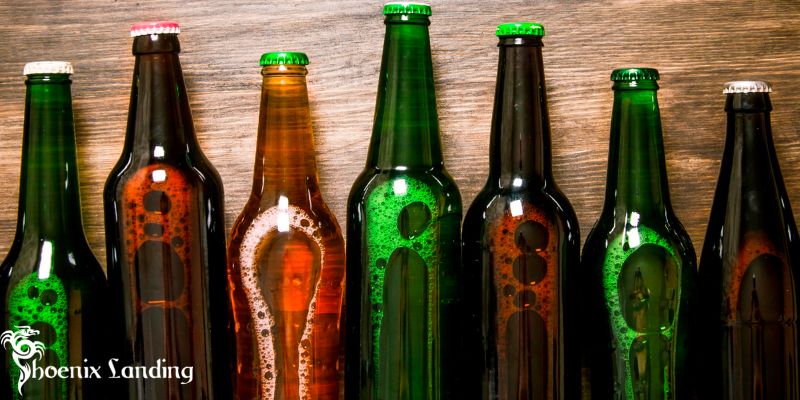
Does Kegged Beer Go Bad?
Kegged Beer can last for weeks, if not months, as long as it is properly cared for. The main reason why kegged Beer can last so long is that it is less susceptible to oxygen exposure.
When you tap a keg of Beer, the Beer is exposed to oxygen which will start to degrade the flavor of the Beer. However, if you keep the keg properly sealed and refrigerated, the Beer will last for weeks, if not months.
One of the best ways to keep your kegged Beer fresh is to invest in a kegerator. A kegerator is a fridge that is specifically designed for storing and dispensing Beer. Kegerators are equipped with CO2 tanks, which help to keep the Beer fresh and carbonated.
Does Growlers Crowlers Beer Go Bad?
Home-brewed Beer is becoming more popular, but many people are unaware of the damage that can be done to a fresh-filled growler or crowler. The best way for you as an end consumer lies in knowing how long it takes before your favorite brew becomes less enjoyable due its oxygen exposure while stored on-site at one location – this includes both breweries and tap rooms where kegs aren’t available! Growlers and crowlers made from 64-ounce containers are perfect for enjoying fresh Beer at home. The best way to enjoy this delicious beverage is within 36 hours of being filled, otherwise, the taste will degrade rapidly!
How Does The Packaging Of Beer Affect Its Quality?
One of the main factors that affects the quality of Beer is the packaging. The type of packaging, as well as how the Beer is packaged, can have a big impact on how long the Beer will last and how it will taste.
Bottled Beer is more susceptible to oxidation than canned Beer. This is because bottled Beer is exposed to oxygen when it is bottled. The oxygen reacts with the Beer and causes it to be stale. Canned Beer is less susceptible to oxidation because the can protects the Beer from oxygen.
Kegged Beer is less susceptible to oxidation than bottled or canned Beer. This is because kegged Beer is not exposed to oxygen until it is tapped. When you tap a keg of Beer, the Beer is exposed to oxygen which will start to degrade the flavor of the Beer. However, if you keep the keg properly sealed and refrigerated, the Beer will last for weeks, if not months.
Growlers and crowlers are also susceptible to oxidation. The best way to enjoy fresh Beer from a growler or crowler is within 36 hours of being filled. After that, the taste of the Beer will start to degrade.
What Is The Best Way To Store Beer?
Keep your beers cold, this ensures freshness and, ultimately, a great beer!
Storing Beer in a Pantry
Beer lovers should consider a pantry to store their brew because it will help keep the Beer fresh and free from UV rays. Just like barley wines, which are susceptible to negative affect due to exposure to UV light (ultraviolet), so you can ruin your favorite beverage with direct sunlight. If the temperature exceeds this, the Beer will start to spoil.
Storing Beer in a Kegerator
A is the most efficient beer storage and dispensing machine. Helps beer stay fresh longer and retain its original flavor. A kegerator is a fridge that is specifically designed for storing and dispensing beer. Kegerators are equipped with CO2 tanks which help to keep the beer fresh and carbonated. In addition, kegerators help to keep the beer cold which will prevent it from spoiling.
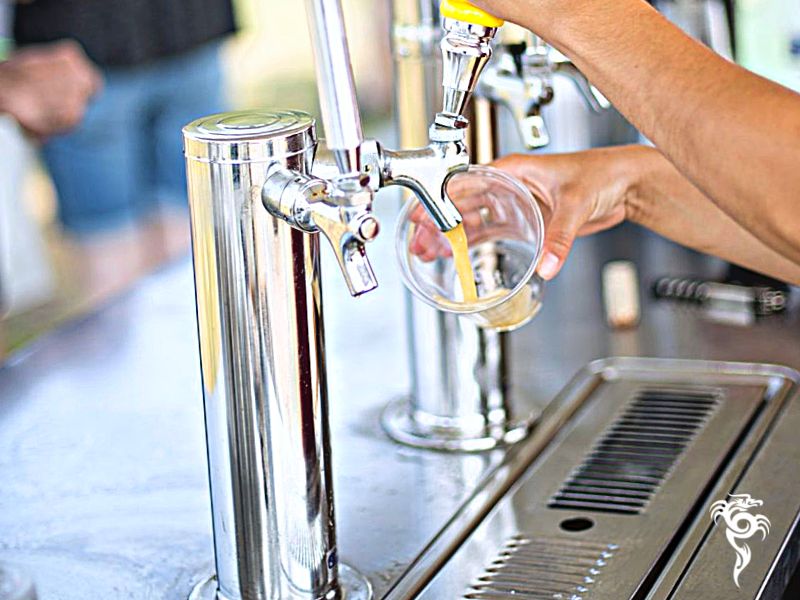
The best way to store beer is in a cool, dark place. This will help to prevent the beer from spoiling and will also help to keep the flavor of the beer.
Storing Beer in a Cellar
To avoid unwanted changes in taste, cold temperatures are an excellent way to slow down the aging process. When you store your Beer in a cold cellar, it will stay fresh longer and taste better over time. If you have a cellar, you can store your Beer at cellar temperatures, which are typically between 50°F and 55°F (10°C and 13°C). Beers that are meant to be aged, such as Belgian sours or stouts, can be stored at these temperatures.
If you want to avoid losing beer bottles and enjoying your favorite drink, then make sure that they’re always standing upright. This is more about preventing breakage than anything else, but if something does happen–spilled alcoholic beverages will go unnoticed for days or weeks before being discovered (depending on how much was spilled). Plus, now all those 4 packs from the local craft cellar are gone!
Storing Beer in a Fridge
It is important to keep the beer cold, so be sure you have a fridge for this. Refrigerators are an excellent choice for those who live in warmer climates, as they can often be found near the front door and provide accessibility. For those without cellars or basements available to them at home – refrigeration may seem like a good idea!
The slower your aging process goes on in general – say from spring through fall when it’s warmer-the better!
You can use a refrigerator to store your Beer, but you need to be careful about two things. First, make sure that the fridge is set to the correct temperature. The ideal temperature for storing Beer is between 35°F and 46°F (1,7°C and 7,8°C). If the fridge is set too cold, the Beer will become frozen and the flavor will be affected. If the fridge is set too warm, the Beer will spoil. Second, make sure that the fridge is not in a sunny location. The sunlight will cause the Beer to skunk.
If you are going to store your Beer in a fridge, it is best to store it in the back of the fridge where it is the coldest. The Beer should be stored in the original packaging, such as the bottle or can, to prevent oxygen from getting to the Beer.
You can also store your Beer in a cooler. A cooler is a great option if you are going to be storing your Beer for an extended period of time, such as if you are going on a camping trip. Make sure that the cooler is large enough to fit all of your Beer and that you pack it with ice or ice packs to keep the beer cold.
Now, you’re reading “Does Beer Expire?” of Phoenix Landing Bar. Keep reading!
Storing Beer in a Freezer
You can store your Beer in the freezer, but you need to be careful. If the Beer is stored in the freezer for too long, it will explode. The ideal storage time for Beer in the freezer is between two and three months. After that, the flavor of the Beer will start to suffer.
When storing your Beer in the freezer, it is best to store it in the original packaging. This will help to prevent freezer burn. You can also store your Beer in a resealable freezer bag.
Make sure that the Beer is completely frozen before storing it in the freezer. Beer that is only partially frozen will explode when it is placed in the freezer.
Storing Beer With Good Packaging
You can age your Beer in the bottle or can, but you need to be careful about two things. First, make sure that the Beer is stored in a dark place. Light will cause the Beer to skunk. Second, make sure that the Beer is stored at cellar temperatures, which are typically between 50°F and 55°F (10°C and 13°C). Beers that are meant to be aged, such as Belgian sours or stouts, can be stored at these temperatures.
When storing your Beer in the bottle or can, it is important to store it in the original packaging. This will help to prevent oxygen from getting to the Beer. You can also store your Beer in a resealable bottle or can.
How To Read Beer Expiration Dates?
The best way to find out if your Beer has expired is to check the label. Most beers will have an expiration date printed on the label. The expiration date will tell you how long the Beer will be fresh. After that, the Beer will start to lose flavor.
Beers that are meant to be aged, such as Belgian sours or stouts, will not HAVE an expiration date. These beers can be stored for many years without losing flavor.
If you are unsure about the freshness of your Beer, it is best to err on the side of caution and throw it out. It is better to drink a fresh beer than a flat one.
To ensure that your Beer is as fresh as possible, it is best to buy from a reputable source. A local brewery or beer store is a great option. These businesses typically have a good turnover rate and sell fresher Beer.
You can also check the bottles or cans for signs of damage. If the bottle or can is dented, rusty, or otherwise damaged, it is best to avoid that Beer. The Beer could be spoiled.
Intentionally Aging Beer
If you want to age your Beer, it is best to do so intentionally. This means that you will need to store the Beer in the correct way. Follow the storage instructions above for storing Beer with good packaging.
When aging your Beer, it is important to keep track of the date. You will need to know when the Beer was bottled or canned so that you can determine when it is time to drink it. Beers that are meant to be aged will typically have a best-before date printed on the label.
Aging your Beer can change its flavor of the Beer. Beers that are meant to be aged will often become more complex and develop new flavors over time.
It is important to note that not all beers are meant to be aged. Beers that are meant to be consumed fresh, such as IPAs, will not taste good if they are aged. These beers will often become stale and lose their flavor.
How To Properly Dispose Of Expired Beer?
If your Beer has expired, it is best to dispose of it. You can pour it down the drain or throw it out in the garbage. It is important to avoid expired drinking beer as it could make you sick.
When disposing of your Beer, it is important to be respectful of the environment. Do not pour your Beer into the environment, such as a river or lake. This can pollute the water and harm wildlife.
It is also important to avoid pouring your Beer into the sewer system. This can cause problems at the water treatment plant and pollute the water supply. The best way to dispose of your Beer is to pour it into a container and throw it in the trash.
FAQs
Is It Safe To Drink Expired Beer?
In most cases, it is safe to drink expired Beer. The Beer will not go bad, but it will lose flavor. Beers that are meant to be aged, such as Belgian sours or stouts, can be stored for many years without losing flavor.
How fast do I need to drink IPA?
IPAs are best consumed fresh. The hops in IPAs will quickly lose their flavor if the Beer is not consumed within a few months of being brewed.
Now, you’re reading “Does Beer Expire?” of Phoenix Landing Bar. Keep reading!
Can you drink beers that have expired for more than 2 years?
Drinking beers that have expired for more than 2 years is not recommended. This is because the Beer will have lost all of its flavors and will not taste good.
Is it better to store Beer in a fridge or cellar?
It is better to store Beer in a fridge. This will help to keep the Beer fresh and prevent it from going bad. Cellars can be too warm, which can cause the Beer to go bad.
How long does unopened Beer last?
Unopened Beer can last for many months. The exact shelf life will depend on the type of Beer and how it was packaged. Beers that are meant to be aged, such as Belgian sours or stouts, can be stored for many years without losing flavor.
How long does opened Beer last?
Opened Beer will last for a few weeks. The exact shelf life will depend on the type of Beer and how it was packaged. Beers that are meant to be aged, such as Belgian sours or stouts, can be stored for many years without losing flavor.
Is it safe to drink Beer that has been stored in a hot car?
It is not recommended to drink Beer that has been stored in a hot car. The heat can cause the Beer to go bad.
Conclusion
In short, so Does Beer Expire? The answer is yes, Beer expires. However, the expiration date is typically much longer than most people realize. Beer can be stored for many months, or even years, without going bad. The key to storing Beer is to keep it cool and out of sunlight. Beers that are meant to be aged, such as Belgian sours or stouts, can be stored for many years without losing flavor.
If you have any questions about beer expiration or storage, please feel free to ask in the comments below. Thanks for reading!
If you want more information to refer to phoenixlandingbar.com
